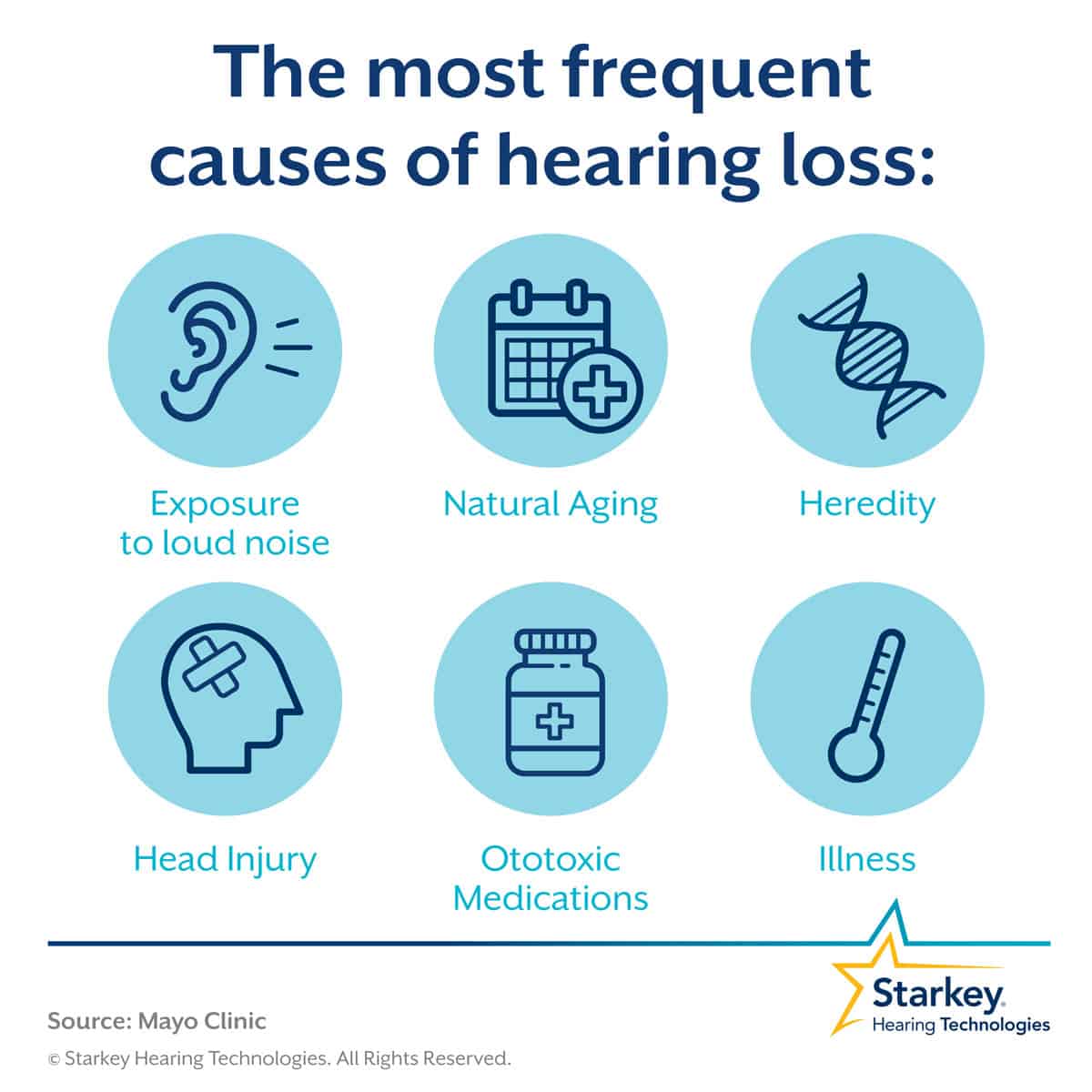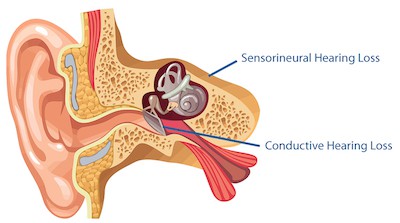Hearing Loss Overview
Hearing loss is the third most prevalent physical disorder and affects individuals of all ages.
According to the Hearing Loss Association of America, about 48 million Americans suffer from some kind of hearing loss. Those aged 60-69 have the highest levels of hearing loss. Interestingly, adult males (aged 20-69) are twice as probable to have hearing loss as females who are the same age.
Signs of hearing loss
There are some tell-tale signs of hearing loss to look out for.
Ask yourself:
- Do you turn the TV up louder than family members like to have it?
- Do you have trouble following a conversations bars and restaurants?
- Do you find it hard to hear on the phone?
- Do you often ask other individuals to repeat what they're saying?
- Does your partner complain that you're not listening to them?
- Are you annoyed by how much everyone mumbles around you?
Those who say yes to more than a few of these questions may have a hearing loss.

Types of hearing loss

Causes of hearing loss

Age-related hearing loss
Age-related hearing loss - Also called presbycusis, age-related hearing loss occurs naturally in all of us. It generally begins between the ages of 45 and 65 and can be aggravated by environmental variables such as high noise exposure. Age-related hearing loss primarily impacts high frequencies and generally occurs in both ears. It is triggered by harm to the fine hair cells in the cochlea through chronic use. This leads to a reduced ability to transmit sound signals to the auditory nerve.

Noise-induced hearing loss
Noise-induced hearing loss - Loud noise is the most common cause of preventable hearing loss. It is a permanent type of hearing loss that can result either from a one-off exposure to an extremely loud noise, such as an explosion, or from a prolonged exposure to a sequence of loud noises. Both types of noise-induced hearing loss happen due to overstimulation and harm to hair cells and supporting structures in the cochlea–an organ that senses sound.
You’re likely in the presence of dangerous noise levels if:
- You are required to raise you voice to talk to the person next to you
- The music on your headphones drowns out traffic and noise around you
- You get a ringing in your ears after a music event or day at work.


